In a nutshell:
- Companies are adopting AI capabilities in marketing to gain a competitive edge.
- AI tools in marketing offer time savings, audience insights, data-driven decision-making, revenue growth, and personalization.
- Today’s top AI marketing tools assist with text content generation, programmatic SEO, CRM, email campaigns, writing aid, conversational AI, content repurposing, SEO optimization, graphic design, and predictive analytics.
- Embracing AI innovations is crucial for achieving remarkable business growth.
Companies and their marketing teams are racing to adopt the latest artificial intelligence (AI) capabilities that can set them apart from their competitors. The boom in generative AI is only the beginning as marketing teams transform how they work across demand generation, digital marketing, performance marketing, and marketing operations.
As the way marketers use AI continues to evolve, there are still tried and true tools that every marketer should try out in their workflows. Below, you’ll find our top-ten list of AI tools for marketers.
What is AI in marketing?
AI in marketing refers to leveraging advanced algorithms and machine learning models to automate and enhance marketing programs. In plain speak, AI can recognize patterns in huge volumes of data to surface insights that will help you make better decisions.
With AI, you can gain deeper insights into your customers, like their behaviors and preferences. Today’s generative AI can also use models based on existing text and images to create new content that builds on humans’ input.
AI is becoming widespread as a partner to marketing teams. A recent survey showed that over a third (35%) of CMOs have now adopted generative AI tools.
And as the public generally becomes more comfortable with AI and accustomed to its use, that number will continue to grow. eMarketer predicts that more than half of all Americans aged 12 to 44 will use generative AI by 2025. Younger workers are already getting on board: Pew Research says that 18% of U.S. adults aged 18 to 29 have used ChatGPT at work, compared to 8% of those aged 50-64.
96% of organizations say generative AI is on their boardroom agenda.
— Capgemini research
How can a team use AI for digital marketing?
The applications of AI in digital marketing are diverse and far-reaching, touching nearly every aspect of the customer journey. From initial outreach to post-purchase engagement, AI-powered tools are helping marketers make data-driven decisions and deliver more impactful campaigns.
Here are some key ways AI is used in digital marketing:
- AI-Powered Personalization: Tailoring content and recommendations based on user behavior.
- AI-Powered Chatbots: Providing instant customer support and engagement.
- Predictive Analytics: Forecasting trends and customer behavior for targeted campaigns.
- AI-Generated Content: Creating personalized content, such as copywriting and imagery, at scale.
- AI-Targeted Ads: Optimizing ad placements and targeting for better ROI.
- AI-Based Voice Search: Enhancing SEO strategies for voice search optimization.
- AI-Based Image/Video Recognition: Improving visual content analysis and tagging.
- AI-Powered Fraud Detection: Preventing fraudulent activities in marketing campaigns.
The benefits of integrating AI into digital marketing strategies are clear: improved customer experiences, more efficient resource allocation, and the ability to make real-time adjustments based on performance data.
What are the typical features of AI marketing tools?
Common features of AI tools in marketing include SEO optimization, content creation, and predictive analytics. AI tools can also enable personalized and optimized marketing assets, including chatbots, targeted advertising, and more.
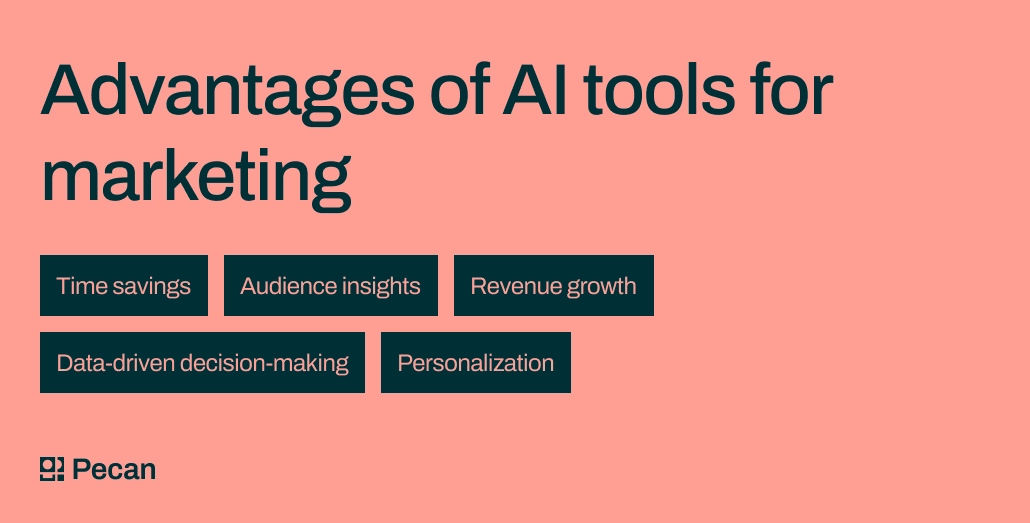
The advantages of AI tools for marketing
What are the top advantages of AI tools for marketing?
- Time savings: Streamline processes for enhanced efficiency
- Audience insights: Understand customer trends and behaviors for targeted campaigns
- Data-driven decision-making: Make informed choices about future strategy
- Revenue growth: Drive business success through optimized strategies
- Personalization: Create tailored consumer experiences
As your marketing strategies evolve, it’s essential to build a comprehensive AI tech stack that enhances your go-to-market strategy, starting with the biggest areas for improvement — or the low-hanging fruit.
Of all a company’s functions, marketing has perhaps the most to gain from artificial intelligence. — “How to Design an AI Marketing Strategy,” Harvard Business Review
Without further ado, let’s explore the top 10 AI tools for marketing in 2024.
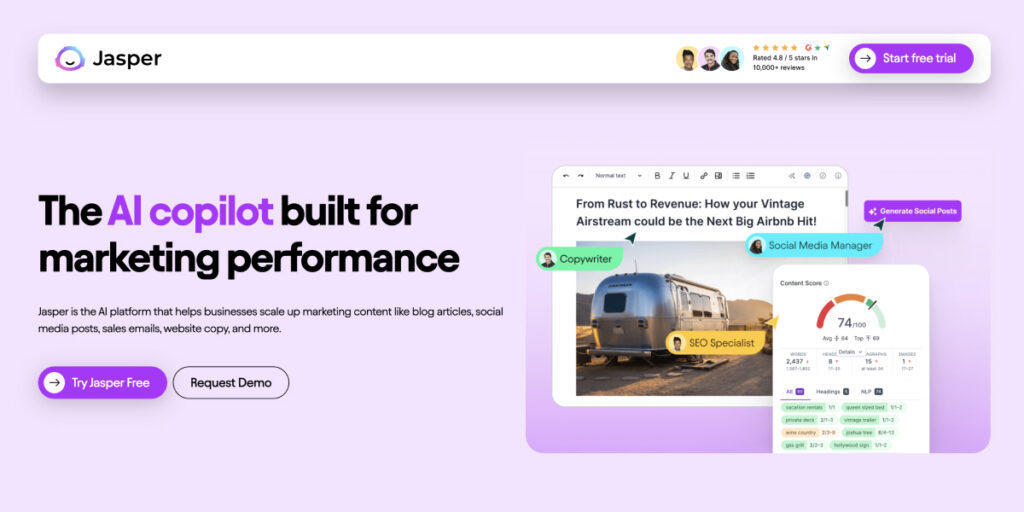
Top AI Marketing Tools: Jasper
AI Marketing Tool #1: Jasper
What it’s used for: Text content
How it works: Jasper AI is a tool for generating high-quality text content. Powered by natural language processing (NLP) algorithms for content generation, Jasper can easily create engaging blog posts, social media content, and email marketing copy. With Jasper, marketers can scale their content marketing and copywriting efforts with just a few inputs.
What it’s great at: Streamlining writing processes and maintaining message consistency.
Areas of limitation: May produce repetitive content when faced with insufficient data.
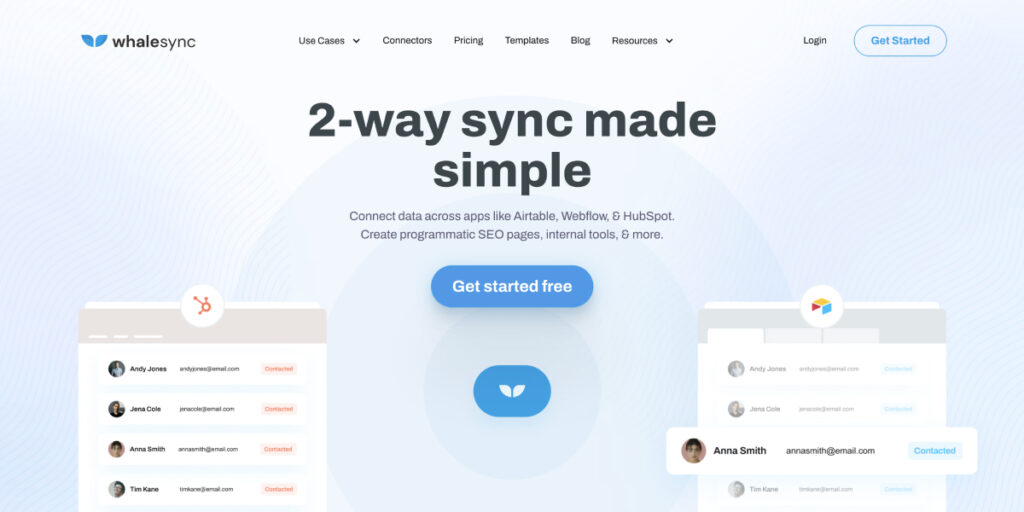
Top AI Marketing Tools: Whalesync
AI Marketing Tool #2: Whalesync
What it’s used for: Programmatic SEO
How it works: Whalesync introduces a new approach to SEO through its programmatic AI capabilities. The tool analyzes search trends, user behavior, and competitor strategies to optimize website content automatically. With AI-driven insights, Whalesync helps drive organic traffic and boost search rankings.
What it’s great at: Simplifying keyword research and on-page SEO editing.
Areas of limitation: Whalesync offers less flexibility compared to its competitors.
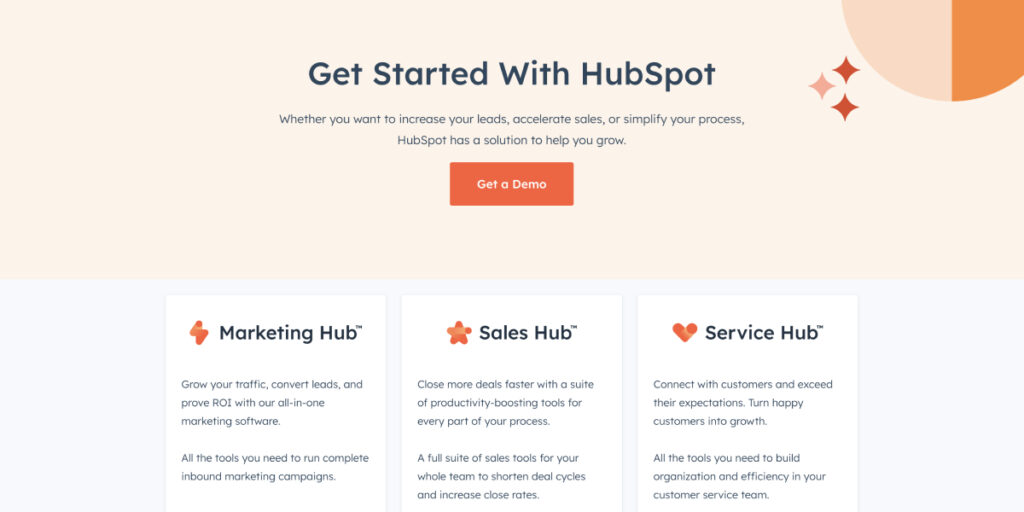
Top AI Marketing Tools: Hubspot
AI Marketing Tool #3: HubSpot
What it’s used for: Customer relationship management (CRM)
How it works: HubSpot’s CRM uses AI to organize and interpret customer data, delivering actionable insights for personalized marketing campaigns. HubSpot’s AI automates lead scoring, predicts customer behavior, and facilitates effective lead nurturing. The platform has also added new AI content features.
What it’s great at: Strengthening relationships with customers through targeted and relevant content.
Areas of limitation: The price and lack of point solutions make it less ideal for smaller businesses.
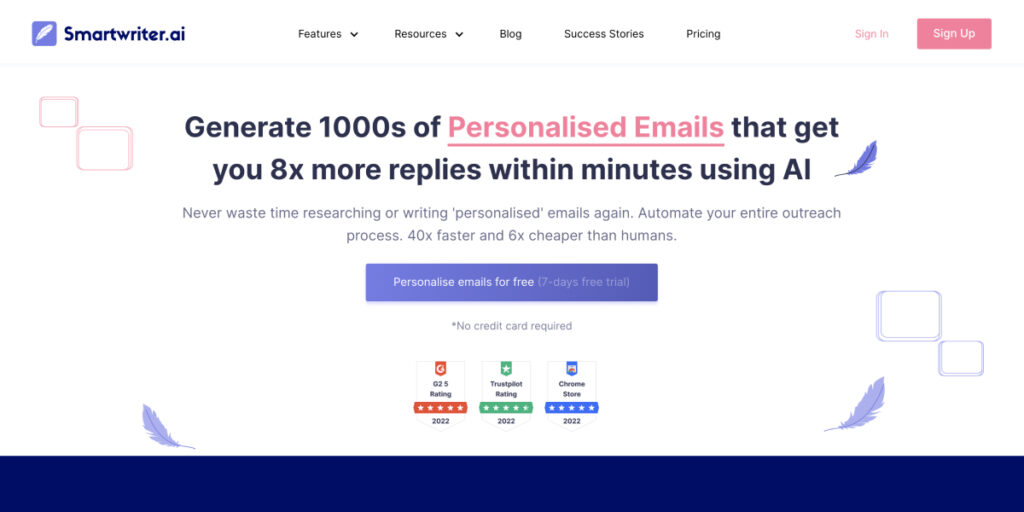
Top AI Marketing Tools: SmartWriter.ai
AI Marketing Tool #4: SmartWriter.ai
What it’s used for: Creating email campaigns
How it works: SmartWriter.ai is an email marketing content optimization tool that takes the guesswork out of crafting compelling email campaigns. SmartWriter.ai uses machine learning to analyze customer preferences and behaviors to recommend personalized email content. As a result, marketers can increase their email marketing campaign performance, including open rates, click-through rates, and conversions.
What it’s great at: Enhancing the effectiveness of email marketing campaigns.
Areas of limitation: Lacks API functionality, which could streamline processes.
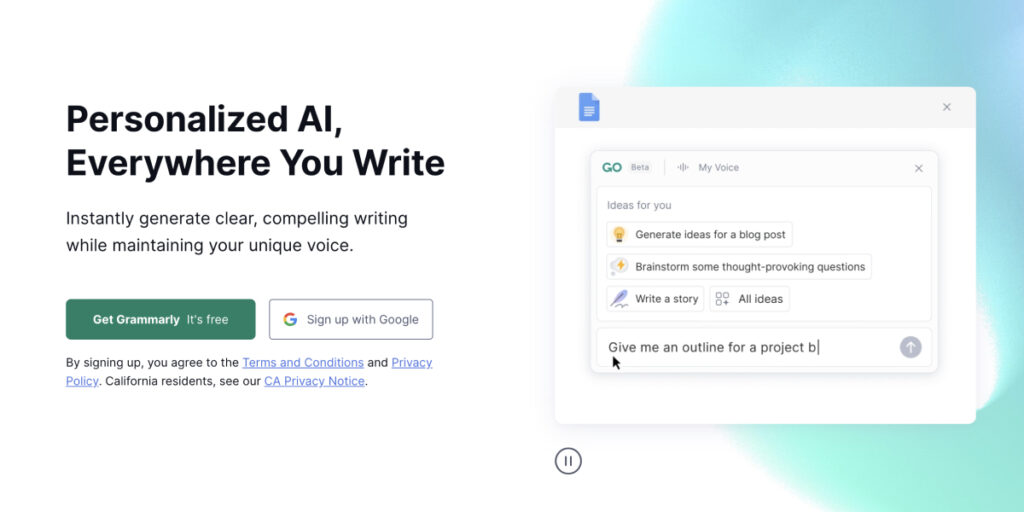
Top AI Marketing Tools: Grammarly
AI Marketing Tool #5: Grammarly
What it’s used for: Writing aid
How it works: While not solely marketed as an AI tool for marketers, Grammarly’s AI capabilities are invaluable in refining and strengthening written communication, and even in maintaining your brand voice. Grammarly’s AI-driven suggestions ensure error-free and engaging content, from blog posts to social media updates.
What it’s great at: Polishing content across mediums to avoid embarrassing and unprofessional typos. Helpful for small teams without dedicated editors.
Areas of limitation: The free version only corrects spelling and grammar and doesn’t have additional features like tone and word suggestions.
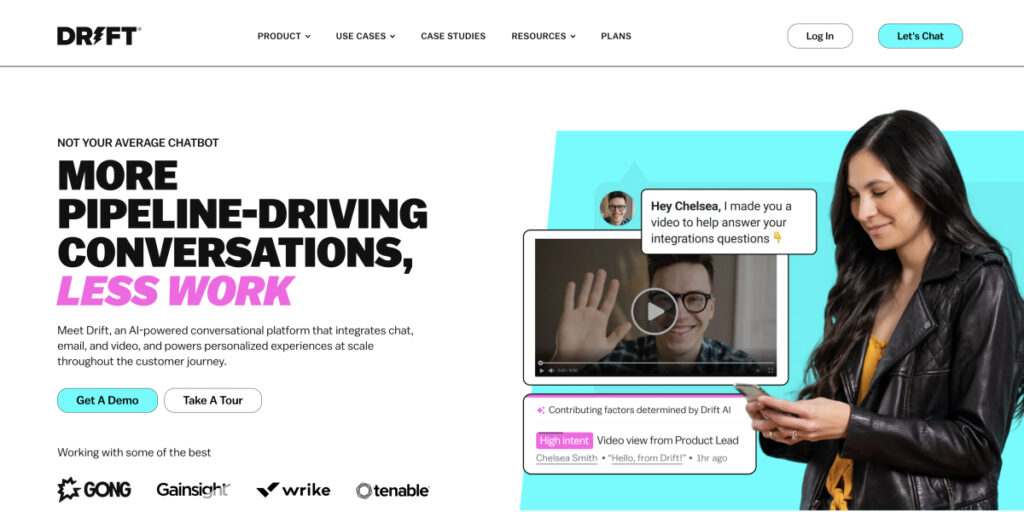
Top AI Marketing Tools: Drift
AI Marketing Tool #6: Drift
What it’s used for: Conversational AI (Chatbots)
How it works: Drift’s Conversational AI enhances customer engagement. The tool uses AI chatbots to interact with website visitors in real time, answering queries and guiding them to helpful content. With Drift, marketers can personalize customer experiences and answer real-time questions, increasing customer satisfaction and conversion rates.
What it’s great at: Providing instant chat support and capturing leads.
Areas of limitation: Drift’s AI can occasionally misidentify prospect information, including company employment status.
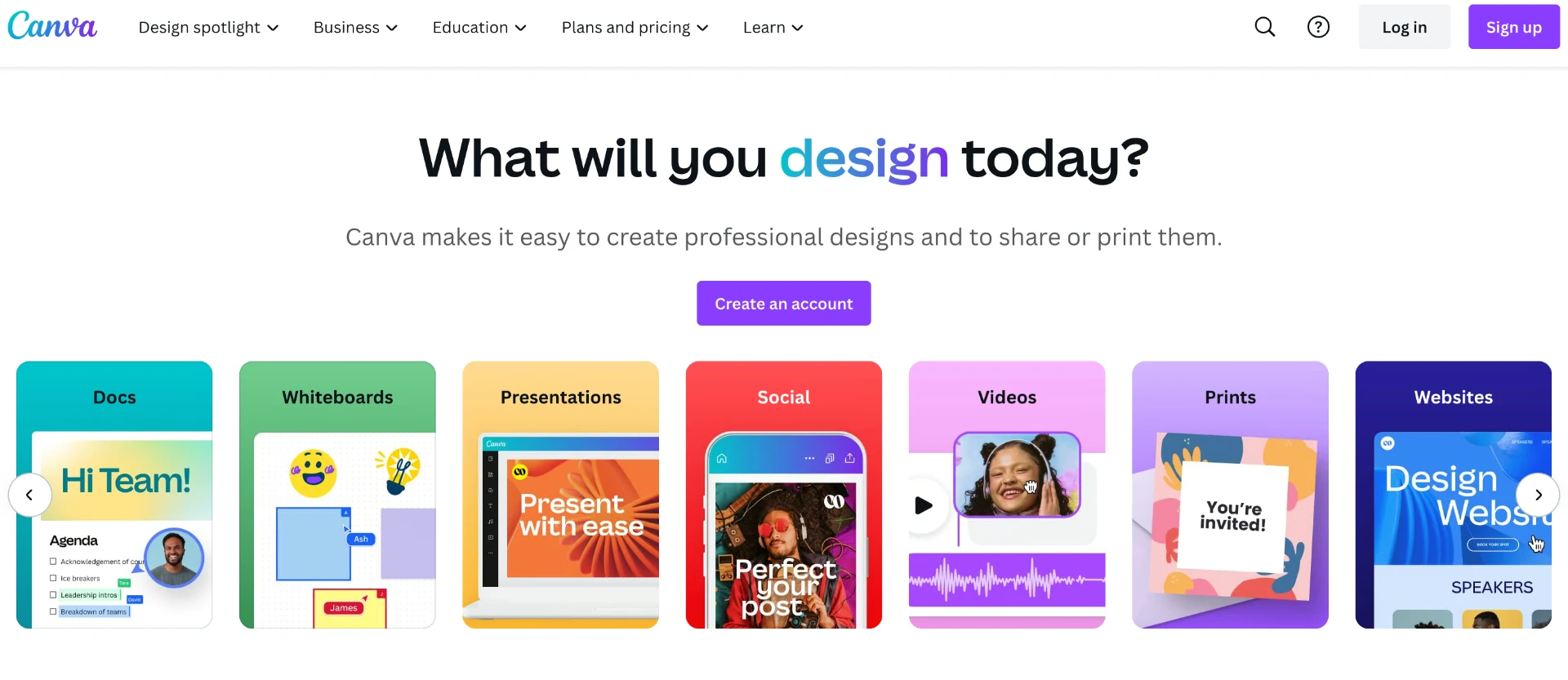
Top AI Marketing Tool: Canva
AI Marketing Tool #7: Canva
What it’s used for: Videos and graphics
How it works: Canva is a graphics and video tool designed for non-professional graphic designers and video creators. The tool provides templates, stock photos and images, easy editing tools, sharing capabilities, and social media posting options. Additionally, new AI capabilities allow users to create videos based on text prompts. It’s possible to add stickers, images, filters, and other quick modifications to the videos to make them unique and interesting.
What it’s great at: Quickly creating on-brand images and videos for marketing, sales, and other uses.
Areas of limitation: It can be difficult to fine-tune graphics and videos as is possible with more advanced tools designed for professional users.
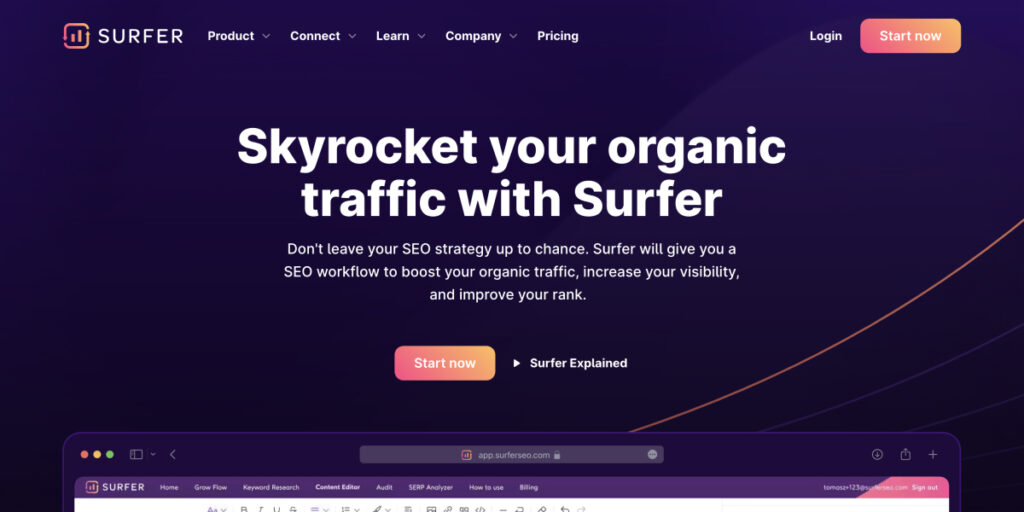
Top AI Marketing Tools: Surfer
AI Marketing Tool #8: Surfer SEO
What it’s used for: SEO
How it works: Surfer SEO’s AI-driven approach to SEO optimization takes the guesswork out of on-page SEO. By analyzing top-ranking search results, Surfer SEO recommends data-backed optimizations, ensuring marketers align their content with search engine preferences.
What it’s great at: Helping you climb search rankings for important keywords.
Areas of limitation: Content writing suggestions may not always be brand-specific.
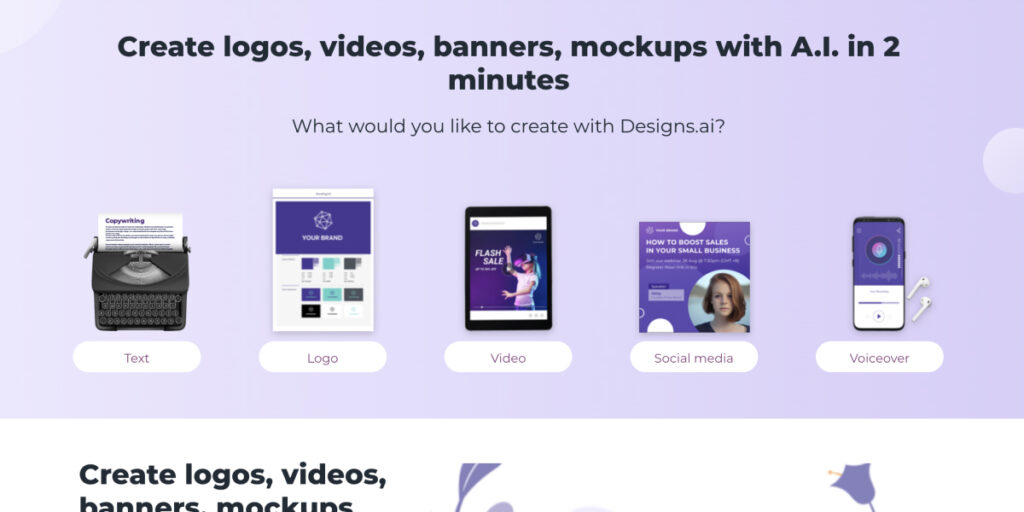
Top AI Marketing Tools: Designs.ai
AI Marketing Tool #9: Designs.ai
What it’s used for: Graphic design
How it works: Designs.ai is an AI tool for marketers seeking professional-quality designs who may not have graphic design expertise. The platform offers an array of design templates for social media posts, banners, infographics, and more.
What it’s great at: Creating visually appealing content.
Areas of limitation: AI-powered voice features can lack natural human intonation.
Predicting customer churn is a powerful tool for boosting retention. Our CEO and co-founder, Zohar Bronfman, explains how it works.
AI Marketing Tool #10: Pecan AI
And last but not least, though we may be a little biased …
What it’s used for: Predictive analytics
How it works: Pecan AI specializes in AI-powered predictive analytics for marketers. Pecan empowers marketers to make informed decisions across their marketing efforts to optimize marketing strategies, campaigns, and revenue. What it’s great at: Accurately predicting customer behavior to guide proactive customer outreach and offers, plus optimizing marketing budgets and campaigns.
Areas of limitation: Most attractive to B2C marketing teams, though still relevant for many B2B teams.
Case study: Using AI-powered customer segmentation for marketing efficiency boost
In today’s competitive market, personalization is key to customer engagement and retention. One wellness services company worked with Pecan to use AI-driven predictive analytics in transforming its customer outreach strategy. This approach led to significant improvements in sales and efficiency.
Initially relying on expensive call center campaigns guided by rule-based logic and descriptive analytics, the company struggled with broad customer segmentation and insufficient personalization based on limited data points. This approach resulted in missed sales opportunities and inefficient resource allocation.
To address these challenges, the company turned to Pecan, an AI-powered predictive analytics platform. Pecan’s solution analyzed all historical Salesforce data to identify nuanced patterns in customer behavior, with the first predictive models ready for testing in just two weeks.
The AI models identified customers most likely to repurchase within 30 days and generated tailored recommendations for each individual, with predictions seamlessly fed back into Salesforce for easy use by sales teams.
The impact of implementing AI-driven predictive analytics was swift and substantial. The company achieved ROI in just two months, capturing $400,000 in incremental sales by targeting customers with the highest repurchase likelihood. Sales processes became more efficient and relevant to customers’ interests, and the company gained the ability to anticipate customers’ needs confidently.
AI can revolutionize marketing and customer engagement, enabling businesses to move beyond broad segmentation to truly personalized experiences that drive sales and improve customer satisfaction.
Embrace the AI marketing revolution.
Whether you’re an AI pro or just starting to explore its potential, embracing innovations in AI is the key to achieving remarkable growth in your business.
Ready to explore adding predictive analytics to your AI marketing tools? Contact us for a demo.




